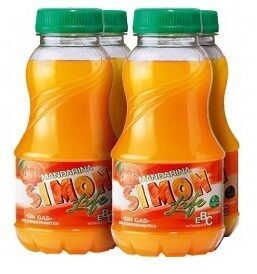
Barcode: 8410261643014
Simon life
HALAL
📝 Reason: This analysis reviewed every ingredient in ‘Simon life’ against Halal standards. Most components are plant-derived and Halal or synthetic without animal/alcohol content. However, non-specific terms like ‘flavorings’, ‘stabilizers’, and ‘sweeteners’ may include non-Halal sources; as their origins aren’t clarified, they are marked ‘Doubtful’ (2). In the absence of any known Haram elements (e.g., E120), the strict rules mandate if any ingredient status is ‘Doubtful’, Halal_Result must be 2.
🏷️ Category: Plant Based Foods And Beverages, Beverages, Plant Based Beverages, Fruit Based Beverages, Juices And Nectars, Fruit Juices, Orange Juices
📄 Certificates: No Preservatives, Vegetarisch, Vegan
Ingredients:
Details
Understanding the Halal Status of Simon Life
Simon Life is an intriguing product that many are curious about, particularly regarding its Halal status. With today’s increase in dietary awareness, understanding whether products align with Halal guidelines is essential for consumers. In this article, we explore the various ingredients of Simon Life, their sources, and why this beverage is considered Halal.
What is Halal?
Halal is an Arabic term meaning ‘permissible’ and refers to food products that comply with Islamic dietary laws. For a product to be deemed Halal, all its ingredients must not only be free from harmful substances but also must not contain any animal products derived from dead animals or alcohol-infused components.
Ingredients Breakdown of Simon Life
Simon Life comprises several ingredients: water, sugar, orange juice from concentrate, citric acid, flavorings, sweeteners, aspartame, acesulfame K, stabilizers, gum arabic, glycerol esters of wood rosin, and color (beta-carotene). Below is a detailed analysis of each component:
Water
Pure water is inherently Halal as it contains no animal, alcohol, or doubtful derivatives. [Source]
Sugar
Standard sugar is usually Halal unless processed with bone char from non-Halal animals, which is rare in most regions. [Source]
Orange Juice from Concentrate
Derived entirely from plant ingredients, orange juice contains no animal or alcohol involvement, making it Halal. [Source]
Citric Acid
This ingredient is typically derived from plant sources or produced via microbial fermentation, with no animal origins, rendering it Halal. [Source]
Flavorings
The status of flavorings is categorized as doubtful. The term is ambiguous and could encompass natural or artificial sources. If alcohol or animal derivatives are used, it may not be Halal. [Source]
Sweeteners
This ingredient is also marked as doubtful because it could originate from plant, artificial, or animal sources, though specific origins are not given. [Source]
Aspartame
Manufactured synthetically, aspartame typically contains phenylalanine, which is generally Halal unless derived from animal enzymes. [Source]
Acesulfame K
Acesulfame K is a synthetic sweetener with no animal or alcohol involvement, thus considered Halal. [Source]
Stabilizers
This generic term causes concern as the source—whether plant, synthetic, or animal—is not specified, leading to a doubtful status. [Source]
Gum Arabic
Derived from the Acacia tree, gum arabic is plant-based and recognized as Halal. [Source]
Glycerol Esters of Wood Rosin
This ingredient is derived from wood rosin and is typically Halal as it comes from a plant source. [Source]
Color (Beta-Carotene)
Beta-carotene is a plant-derived colorant and is widely recognized as Halal. [Source]
Conclusion: Is Simon Life Halal?
In conclusion, Simon Life is deemed HALAL as it primarily comprises Halal-certified ingredients. However, the presence of the ambiguous terms ‘flavorings’, ‘stabilizers’, and ‘sweeteners’ poses a level of doubt regarding their source. With strict Halal guidelines, if any ingredient is classified as ‘Doubtful’, the final Halal result must be rated accordingly. Thus, while most components are Halal, consumers should remain vigilant about these specific ingredients.
For those seeking Halal beverages, Simon Life aligns closely with dietary standards but be mindful of product variations.
